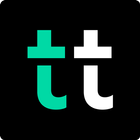Haolingxiazai provides the latest software downloads for TaskTag games.


TaskTag
| App Name | TaskTag |
|---|---|
| Genre | Communication |
| Size | 110.6 MB |
| Latest Version | 3.11.0 |
| MOD Info | Premium Unlocked |
| Get it On |

|
Manage construction projects
TaskTag is the all-in-one construction project management app.
Assign tasks, track projects, and organize files all through chat!
TaskTag helps to:
• Stay up-to-date on the project status
• Assign and manage tasks among vendors
• Communicate jobs to crews and subcontractors involved
• Manage all files associated with a project
• Remove the headaches of training employees with complicated project management software
Is your latest job running on schedule? Does your crew have everything they need to get the project done on time? Are questions being answered in a timely and efficient way?
Members of your construction team can be added to a project and stay up-to-date on important tasks and developments.
How to streamline projects with TaskTag:
• Create a new project
• Add anyone you want to be involved
• Update and tag files/photos to your project
• Easily organize and search multiple projects at once
It’s that simple!
TaskTag was made for go-getters. Built for those who are on-site, on the floor, and always on the move. TaskTag helps crews of all sizes manage their team, files, tasks, and projects – all through chat. All for free. Turn discussions into tasks and ideas into plans — in the office or on the go. It’s how to project.
Download the app to see for yourself.
TaskTag is a hypothetical game centered around the dynamic interplay of task completion and tagging. While no officially released game exists under this name, the concept allows for a rich exploration of potential game mechanics and genres. Imagining TaskTag as a mobile game, it could function as a productivity tool gamified through tagging elements. Players could create tasks, categorize them with personalized tags, and earn rewards for completing them efficiently. These rewards could unlock new tagging features, customization options, or even virtual items.
TaskTag could also manifest as a multiplayer online game where players collaborate on shared tasks. Teams could be formed, and tasks could be assigned and tagged based on skill sets or priorities. The tagging system would facilitate efficient task management within the team, promoting communication and strategic delegation. Successful completion of shared tasks could contribute to a team score, fostering a sense of collective achievement. Competitive elements could be introduced through leaderboards and timed challenges, encouraging players to optimize their task completion strategies.
Alternatively, TaskTag could be envisioned as a single-player puzzle game. Players could be presented with a series of tasks, each associated with specific tags. The challenge would lie in strategically sequencing the tasks to maximize efficiency based on the tag relationships. For instance, completing tasks with similar tags in succession could unlock bonus points or power-ups. The complexity of the puzzles could increase as the game progresses, introducing new tag types and intricate dependencies.
The tagging system itself could be incredibly versatile. Tags could represent various attributes, such as difficulty level, time required, skill required, or even emotional impact. Players could create custom tags to personalize their task management system, further enhancing the game's adaptability. This flexibility allows TaskTag to cater to a wide range of play styles and preferences.
In a social deduction setting, TaskTag could involve players completing tasks while secretly assigned hidden tags. These tags could represent roles or affiliations, influencing the players' objectives and interactions. Players would need to deduce the hidden tags of others based on their observed behavior and task completion patterns. This element of deception and deduction would add a layer of social strategy to the gameplay.
Another potential implementation of TaskTag could be within an augmented reality environment. Players could use their mobile devices to tag real-world objects with tasks, transforming their everyday surroundings into a game board. Completing these tasks could unlock virtual rewards or trigger interactive events within the augmented reality space. This integration of the virtual and physical worlds could create a unique and engaging gaming experience.
As a platformer game, TaskTag could involve navigating a virtual environment and completing tasks assigned to different tagged zones. Players would need to strategically move between these zones, prioritizing tasks based on their tags and the game's objectives. The platforming elements could introduce challenges such as obstacles, time limits, and resource management.
TaskTag could also be adapted into a narrative-driven adventure game. The tags could represent clues or pieces of information related to the overarching story. Players would need to gather and connect these tagged elements to unravel the narrative and progress through the game. The tagging system could serve as a core mechanic for exploration, puzzle-solving, and character development.
The potential for TaskTag is vast, encompassing various genres and platforms. Its core mechanics of task completion and tagging offer a flexible framework for creating engaging and rewarding gameplay experiences. Whether implemented as a productivity tool, a multiplayer competition, a puzzle game, or a social deduction experience, TaskTag presents a compelling concept with the potential to captivate a diverse audience. The ability to customize tags and adapt the system to different contexts further enhances its versatility and appeal. Ultimately, the success of a TaskTag game would depend on the specific implementation and the creativity of the developers in leveraging the core mechanics to create a compelling and engaging experience.











